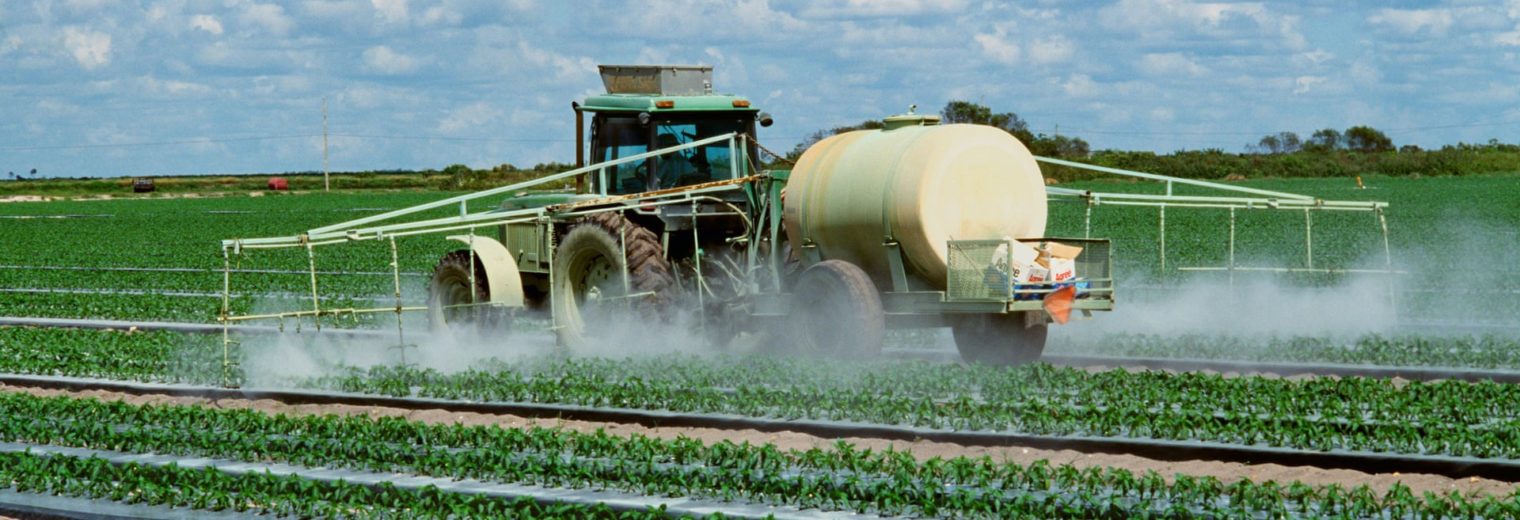by Anna Lappé and Kendra Klein, The Guardian
A new study shows that US families consume cancer-linked glyphosate in their food. The good news: going organic rapidly reduces levels.
Never before have we sprayed so much of a chemical on our food, on our yards, on our children’s playgrounds. So it’s no surprise that Roundup – the world’s most widely used weedkiller – shows up in our bodies. What is perhaps surprising is how easy it is to get it out. A new peer-reviewed study, co-authored by one of us, studied pesticide levels in four American families for six days on a non-organic diet and six days on a completely organic diet. Switching to an organic diet decreased levels of Roundup’s toxic main ingredient, glyphosate, by 70% in just six days.
“If my kids have this much of a change in their numbers, what would other families have?” asked Scott Hersrud of Minneapolis, Minnesota, a father of three who participated in the study. The answer to that question is increasingly clear: a big one. This study is part of a comprehensive scientific analysis showing that switching to an organic diet rapidly and dramatically reduces exposure to pesticides.
That’s good news, but it raises a grave question: why do we have to be supermarket detectives, searching for organic labels to ensure we’re not eating food grown with glyphosate or hundreds of other toxic pesticides.
Glyphosate was flagged as a potential carcinogen as far back as 1983 by the US Environmental Protection Agency (EPA), yet use of the chemical has grown exponentially since, with the chemical giant Monsanto – purchased by Bayer in 2018 – dominating the market. Numerous reports have covered the internal company documents showing how Monsanto’s influence over the EPAsucceeded in suppressing health concerns.
In fact, rather than restricting the use of glyphosate, the EPA has raised the legal thresholdfor residues on some foods up to 300-fold above levels deemed safe in the 1990s. And unlike with other commonly used pesticides, the government has turned a blind eye for decades when it comes to monitoring glyphosate – failing to test for it on food and in our bodies.
The agency’s slipshod regulation has led to a dramatic increase in exposure. Research shows that the percentage of the US population with detectable levels of glyphosatein their bodies increased from 12% in the mid-1970s to 70% by 2014.
The new study paints an even more concerning picture. Researchers found glyphosate in every participant, including children as young as four. “I would love to get those pesticides out of my body and my family’s bodies,” said Andreina Febres of Oakland, California, a participant and mother of two.
Parents have sound reasons to be concerned about their children’s exposure to glyphosate and other pesticides. While food residues often fall within levels that regulators consider safe, even government scientists have made it clear that US regulations have not kept pace with the latest science. For one, they ignore the compounding effects of our daily exposures to a toxic soup of pesticides and other industrial chemicals. Nor do they reflect that we can have higher risks at different times in our lives and in different conditions: a developing fetus, for instance, is particularly vulnerable to toxic exposures, as are children and the immunocompromised. Instead, US regulators set one “safe” level for all of us. New researchalso shows that chemicals called “endocrine disruptors” can increase risk of cancers, learning disabilities, birth defects, obesity, diabetes and reproductive disorders, even at incredibly small levels. (Think the equivalent of one drop in 20 Olympic-sized swimming pools.)
Research has linked glyphosate to high rates of kidney disease in farming communities and to shortened pregnancy in a cohort of women in the midwest. Animal studies and bioassays link it to endocrine disruption, DNA damage, decreased sperm function, disruption of the gut microbiome and fatty liver disease.
The pesticide industry’s success in keeping a chemical with known toxicity on the market is emblematic of a fundamental system failure. The US allowsmore than 70 pesticides banned in the European Union. And in just the last few years, the EPA has approved more than 100 new pesticide products containing ingredients deemed to be highly hazardous.
Yet last year, it looked like glyphosate was going to be a success story of another kind – the kind where science wins. In the wake of the World Health Organization determination that glyphosate is a probable human carcinogen, thousands of farmers, pesticide applicators and home gardeners filed lawsuits linking their cancer to Roundup. The first three cases were settled in favor of the plaintiffs, saddling Bayer with $2bn in damages (later reduced by judges). But this summer, while Bayer agreed to pay $10bnto settle an additional 95,000 cases out of court, the company again evaded responsibility: under the terms of the settlement, Roundup will continue to be sold for use on yards, school grounds, public parks and farmswithout any safety warning.
Pesticide companies’ ability to keep profiting from products that poison us is particularly egregious given that we have a solution. Organic works. And not just for our health – researchshows that a shift away from pesticide-intensive agriculture leads to significant improvements for biodiversity and other environmental benchmarks while also yielding enough to ensure a well-fed planet.
We can look to the European Union for some hope. This summer the EU announced plans to halve use of pesticides by 2030 and transition at least 25% of agriculture to organic. But in the US, despite ever-growing demand for organic food, the government continues to favor the profits of the pesticide industry over our health, spending billions of our taxpayer dollars to prop up pesticide-intensive farming while organic programs and research are woefully underfunded.
As this study shows, the end result is toxic chemicals in our bodies that don’t need to be there. A growing number of people are responding by buying organic, but what about the many who don’t have access to organic or can’t afford it? As long as we treat organic food as if it’s a shopping preference instead of a public good, we will miss the opportunity to fight for a desperately needed shift in how we farm – one that would ensure that no one is exposed to toxic pesticides from the food they eat.
Header image courtesy of The Guardian / Alamy.



